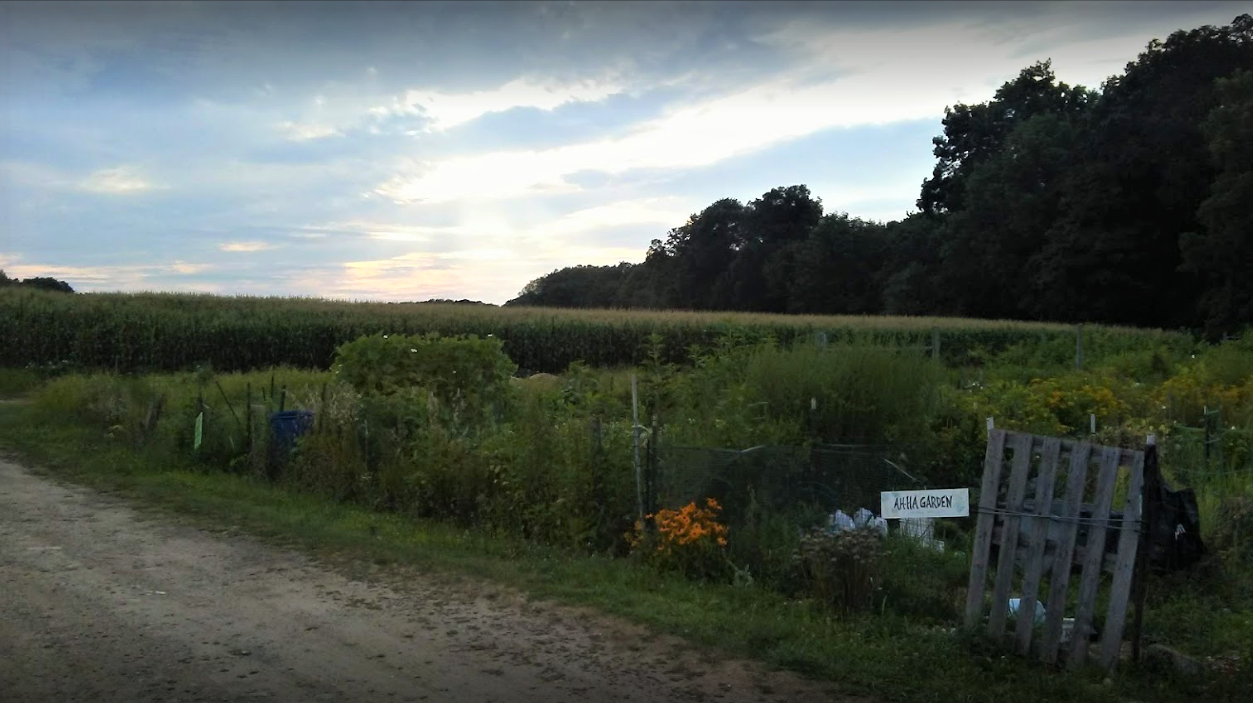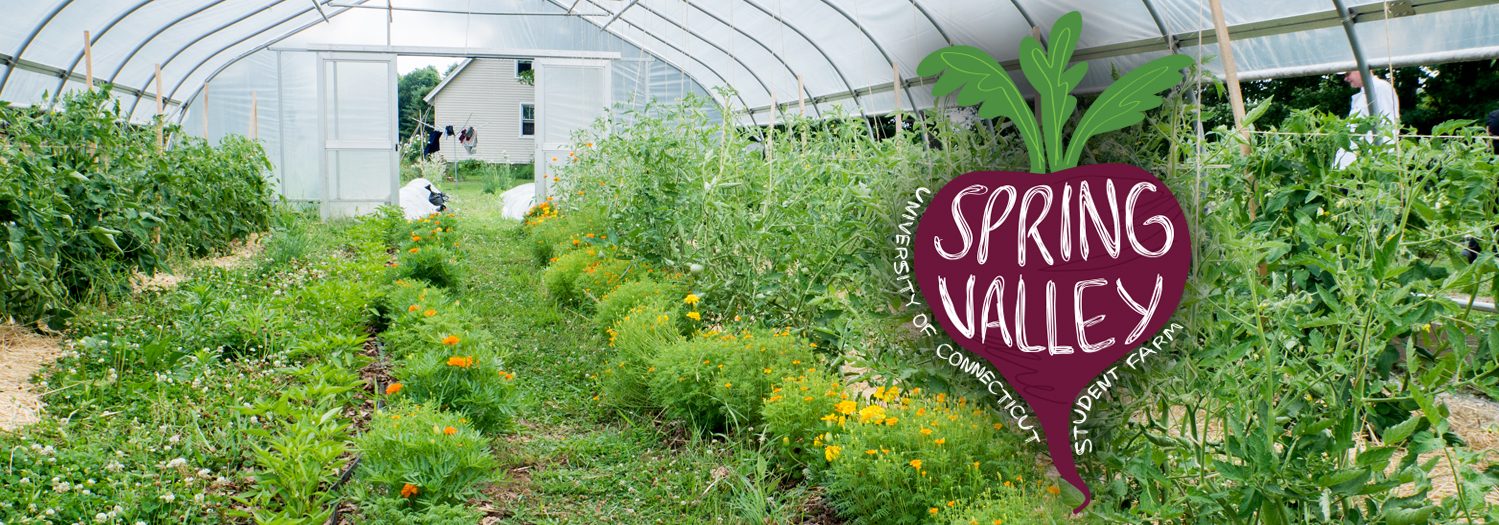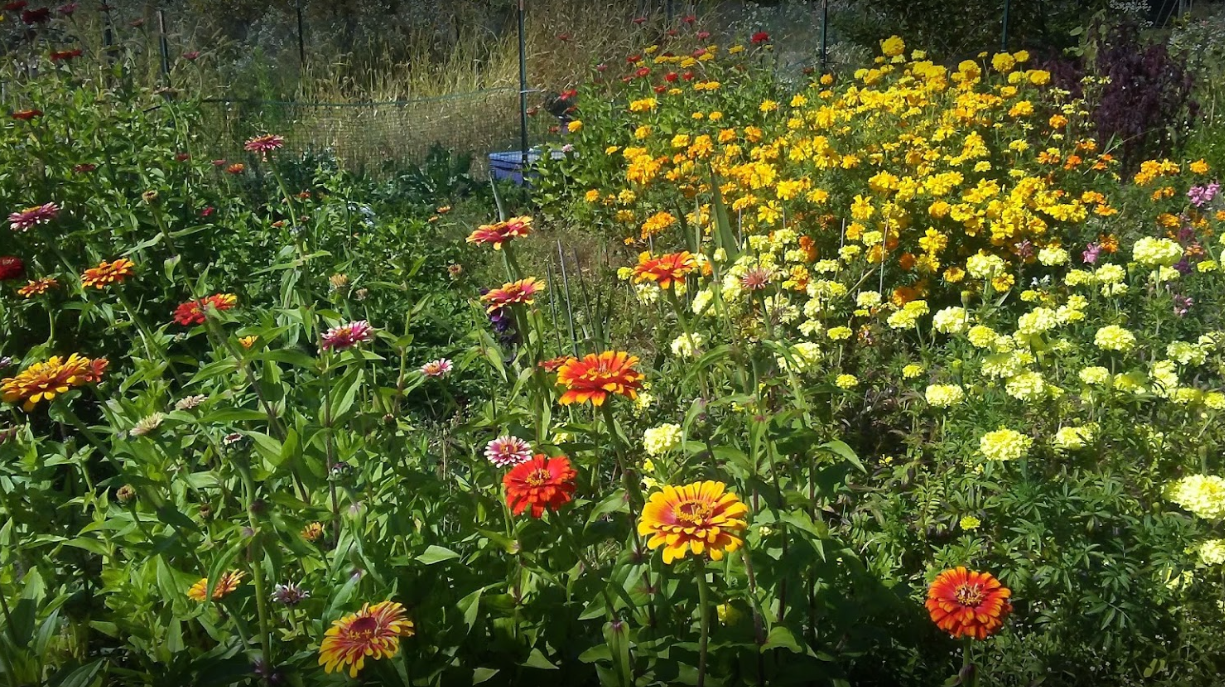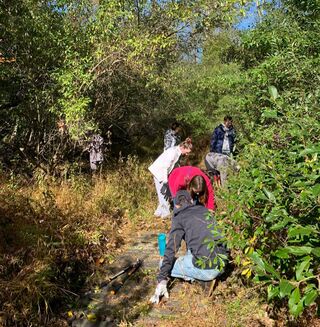Guest Blog by Patrick McKee, Committee Chair, Bee Campus USA – University of Connecticut Storrs
Sustainability Program Manager, Office of Sustainability, University of Connecticut Storrs

In 2018 the University of Connecticut Storrs became the first certified Bee Campus in the state of Connecticut. UConn’s Bee Campus application was primarily student-driven, spearheaded by UConnPIRG (Public Interest Research Group), a student activist organization on campus. The current Bee Campus USA Committee is comprised of faculty, staff, and students that have integrated pollinator protection throughout campus activities by bringing together the campus community around a shared goal. Throughout the year, campus groups including the Spring Valley Student Farm, Eco Garden club, and UConn Extension host pollinator-related events and outreach and work to make UConn a more pollinator-friendly campus. In 2019, UConn invited the campus community and general public to join them for a variety of exciting pollinator education, outreach, and habitat enhancement activities.

UConn is home to the Spring Valley Student Farm, which welcomes students and other volunteers to grow sustainable produce. Students help plant, weed, and harvest a variety of flowers, food crops, and forest plants, with the help of the 11 farm residents and volunteers. This past year, in addition to a variety of other flower species, milkweed was planted to provide habitat to pollinators. The farm uses organic fertilizers and non-chemical pest prevention. On Thursdays, from May through September, UConn’s Spring Valley Student Farm participated in the Farm Fresh Market, a farmers market located on campus where students sell flowers, vegetables, and other produce.
In addition to working at the Spring Valley Student Farm, UConn students and volunteers completed invasive species removal and trail maintenance in the Hillside Environmental Education Park (HEEP) on campus. HEEP consists of uplands, meadows, woodlands, wetlands, and riparian zones and includes a network of hiking trails.
The EcoGarden Club, comprised of about 15 students, also planted new pollinator plants at the Mansfield Community Eco Garden, which they work on between May and October. This garden includes herbs, vegetables, and a variety of flower species.
UConn also planted hundreds of native tree species throughout 2019, including oak, dogwood, and pine trees. More information on these species can be found on the UConn Arboretum Committee website. The map documents the inventoried trees at the UConn Storrs campus and viewers can see information about each of these trees, including their plant date and if they are a native species.
Events like these help UConn reduce the use of pesticides on campus. UConn employs a variety of different strategies for pest management, which you can learn more about in their integrated pest management plan, developed in 2019.
|
|
In October 2019, UConn hosted a Native Plants and Pollinators Conference. This exciting day of presentations featured current science-based research and information on supporting pollinators in managed landscapes. The program was designed for growers and other green industry professionals, landscape service providers, landscape architects and designers, town commissions, municipalities, schools, and homeowners to learn how to utilize native plants to provide the greatest value for pollinators throughout the year. Session topics included: Monarch Waystation; Asters & Goldenrods: Autumn’s Pollinator Banquet; Evaluating Pollinator Attraction of Herbaceous Perennial Nativars; Aronia Up Close: Built in Complexity and Potential; and What We Know About Nativars, Pollinators, and the Nursery Industry: Making Informed Decisions.
Other outreach activities hosted by UConn included free pollinator puppet-building workshops, an Earth Day spring fling, and most recently a screening of the documentary “Pollinators” followed by a Q&A with the director and producer.
UConn also works to integrate pollinator conservation into service learning opportunities and curriculum. In the fall 2019 service learning course, Insects, Food, and Culture, students developed group projects on various insect-related topics. Students developed posters focusing on the questions, 1) what are pollinators and how do we interact with them, and
2) problems that pollinators face. Students also shared information about pollinators at a local after-school program.
Other courses incorporated information on plant ecology, pollinator biology, integrated pest management practices, pollinators in agriculture, and landscaping for pollinators. You can find a full list of these courses in UConn’s renewal report.

Throughout the year, UConn Public Interest Research Group (UConnPIRG) used signage to promote bee conservation and raise awareness about their Save the Bees Campaign. Flyers and permanently installed signs shared information and facts about the protection of pollinators. These signs included information on the foods that require pollination and the fact that 1 out of 3 forkfuls of food are a product of pollination. Ten signs permanently installed in the dining halls remind students of the importance of pollinators everyday. These signs and flyers help raise awareness about the role of pollinators in our food systems and ecosystems.
UConn’s Bee Campus committee has harnessed existing enthusiasm for environmental stewardship on campus and added to the positive momentum. Through education, outreach, and habitat enhancement, UConn has worked throughout 2019 to bring together the campus and broader community to make UConn’s campus a better place for pollinators. UConn looks forward to continuing its work to reverse pollinator declines in the years ahead.








